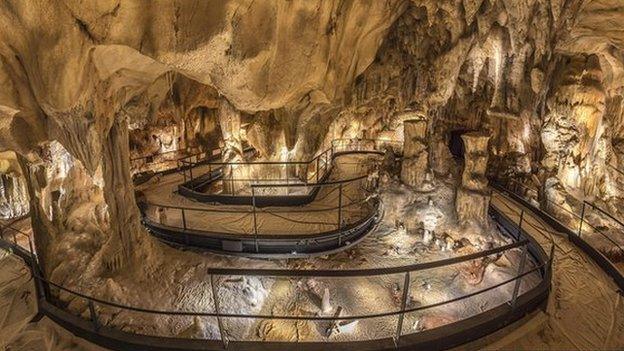3D scans reveal largest Native American cave art
- Published
- comments
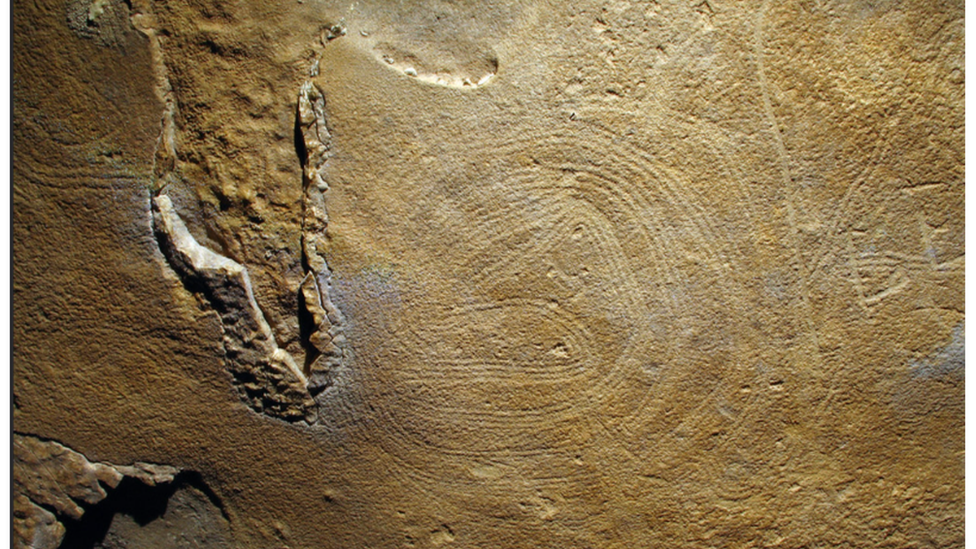
Hundreds of drawings including this picture of a coiled snake were found in the cave
Scientists have discovered the largest known Native American cave art, in the south-eastern US state of Alabama.
Calculations show that the drawings - a mixture of larger and smaller pieces - are more than a thousand years old!
The art was practically invisible until experts used 3D scans which revealed the artwork.
Researchers hope that this technology could lead to more findings of artworks in other locations and could give us a better understanding of ancient Native American life.
What did experts do?
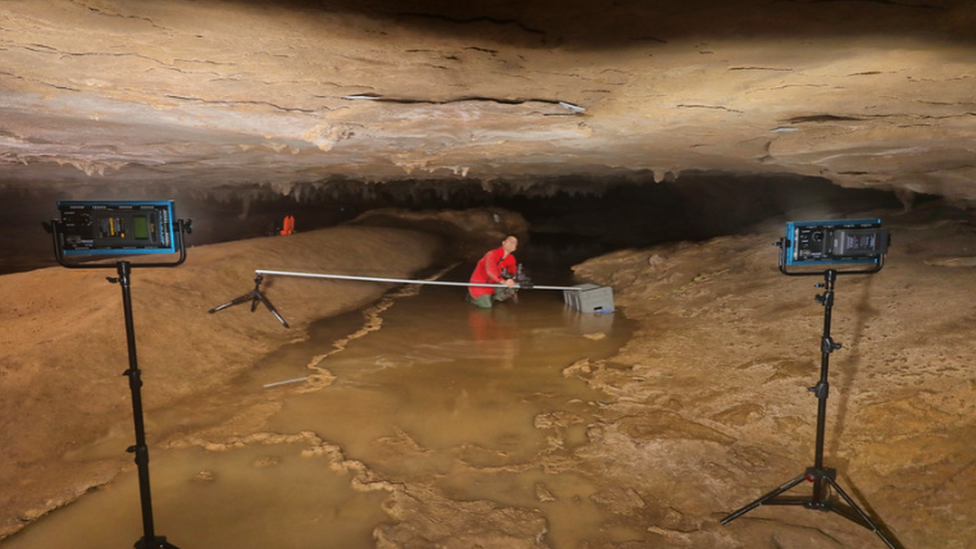
The cave was dark and narrow - in some places it was only 60cm high!
The cave was first discovered nearly 25 years ago but scientists had its location kept secret to keep it safe.
Hundreds of smaller images drawn in the mud were discovered throughout the cave but because the cave was dark and very narrow it was impossible to see them clearly or take good pictures of the carvings. In some parts, the cave's ceiling was only 60cm high!
To get a more complete picture of the artwork, scientists returned to the cave in 2017 and decided to use a new technique called 3D photogrammetry which involves taking thousands of photos to create a 3D model of the cave.
The team took 16,000 photographs over a two month period.
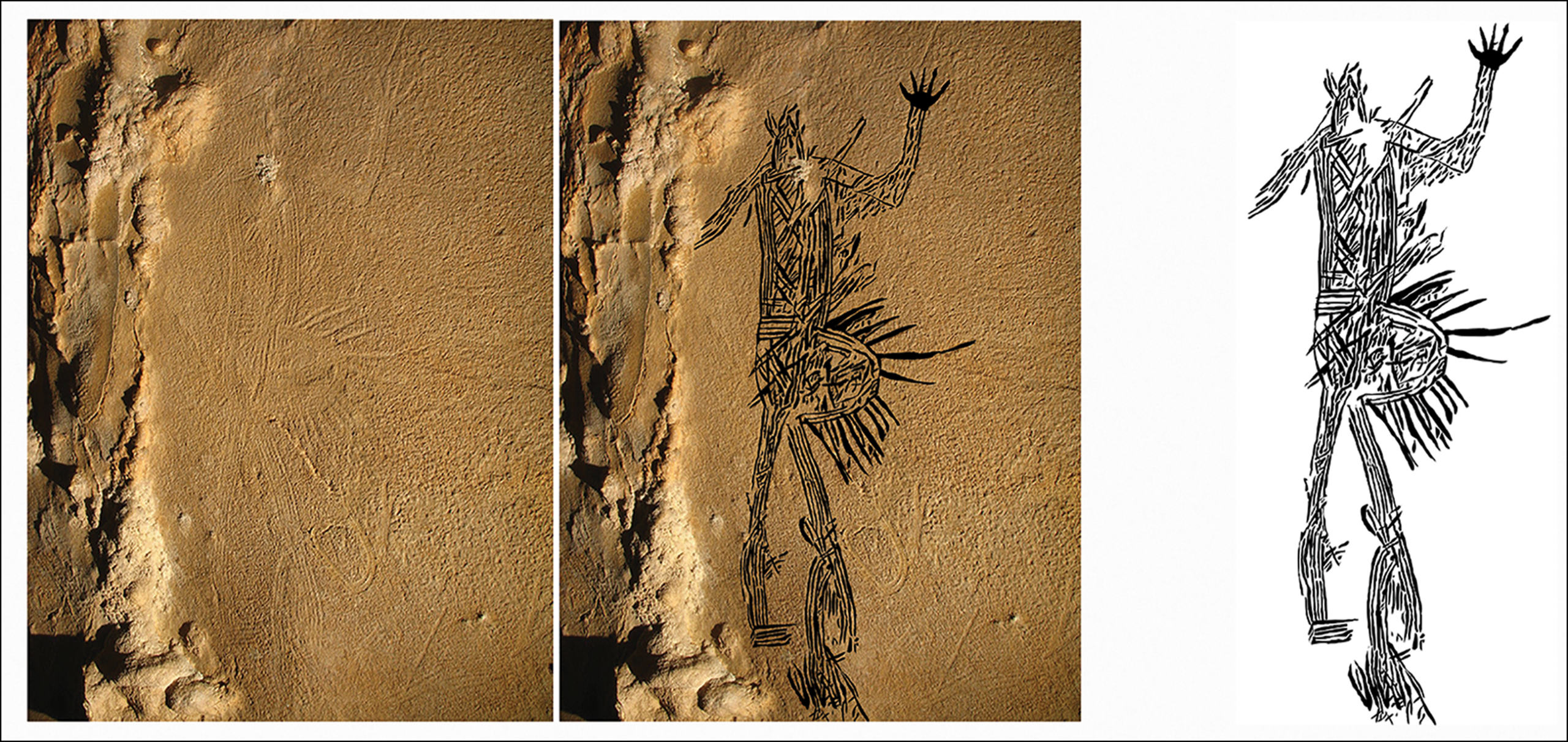
3D scans meant that some of the very faint drawings were brought to life
The 3D software had an added bonus too - scientists could shine a virtual light on the ceiling's surface which revealed previously unseen drawings!
The team were surprised to find five giant new drawings they hadn't seen before.
Researchers found images including those of birds, human figures and animals such as bison and insects. The largest piece found was a drawing of a rattlesnake that was three metres long!
The team now hope to use 3D scans in other cave sites to see if they can spot new images that were previously hidden!
- Published24 February 2021
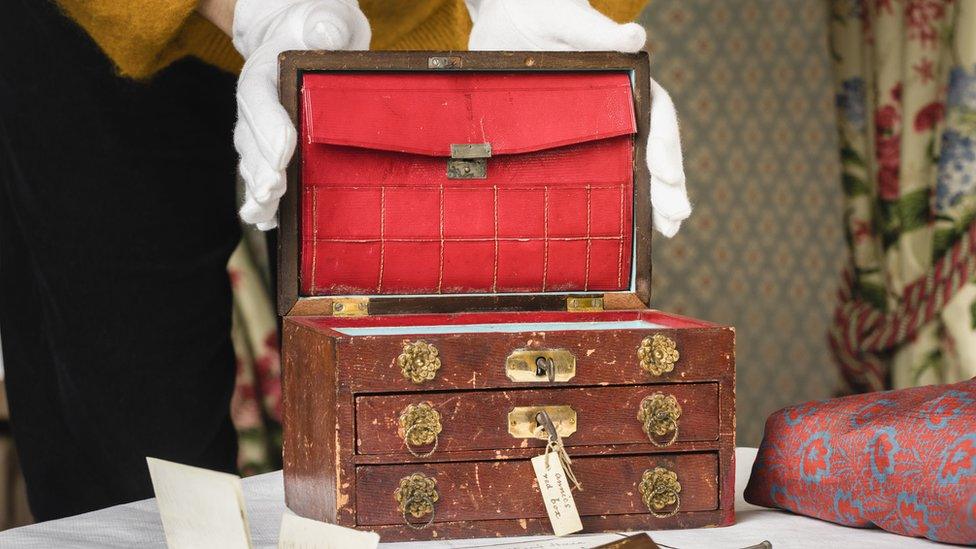
- Published12 January 2022
- Published25 April 2015
